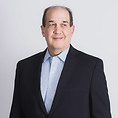Guidance for Corporations from House Ethics Committee Reports on Earmarks, Travel
On February 26, 2010, the House Committee on Standards of Official Conduct (the Ethics Committee) announced its conclusion of two closely watched investigations. The Committee's investigation "In the Matter of Allegations Relating to the Lobbying Activities of Paul Magliocchetti and Associates Group, Inc. (PMA)" reviewed allegations of improper linkage between campaign contributions to House members and proposed appropriation (earmark) requests by the now-defunct PMA lobbying group and its clients. Separately, the Committee's "Investigation Into Officially Connected Travel of House Members to Attend the Carib News Foundation Multi-National Business Conferences in 2007 and 2008" concerned allegations of improper and undisclosed corporate sponsorship of congressional travel nominally sponsored by a nonprofit group. The Ethics Committee's actions in these matters generated headlines about a number of members of the House. Beyond these headlines, however, the Committee's investigative reports contain findings and conclusions of particular significance to corporate participants in the congressional process.
The Ethics Committee's investigation in the PMA matter focused on allegations of improper linkage between earmark requests and campaign contributions to seven House members: Norm Dicks (D-WA), Marcy Kaptur (D-OH), James Moran (D-VA), the late John Murtha (D-PA), Todd Tiahrt (R-KS), Peter Visclosky (D-IN) and C.W. Bill Young (R-FL). With regard to these named members, and House members generally, the Ethics Committee "found no evidence that Members or their official staff considered campaign contributions as a factor when requesting earmarks." The Committee "further found no evidence that Members or their official staff were directly or indirectly engaged in seeking contributions in return for earmarks"; indeed, the Committee stated that "the evidence showed that earmarks were evaluated based upon criteria independent of campaign contributions. . . ."
The Committee did find evidence that the PMA Group used "strong arm" tactics with members-including threats to withdraw financial support-and "pushed" a strategy on its corporate clients of maximizing campaign contributions to targeted members "while pursuing earmarks." However, the Committee found that House members resisted PMA's tactics and determined that the evidence did not show that members were involved in or knew of PMA's earmark strategy. Accordingly, the Ethics Committee closed its investigation into earmark-related allegations. It appears that a separate investigation by the Department of Justice involving Congressman Visclosky continues.
Perhaps of most significance in the Ethics Committee's PMA report was its statement that entities are not disqualified from obtaining earmarks sponsored by a member simply because they may also be campaign contributors to that member. The Committee stated pointedly:
Members are elected to serve their constituents and legislate. Under our system of government, these duties may include appropriations requests commonly referred to as earmarks. However, simply because a Member sponsors an earmark for an entity that also happens to be a campaign contributor does not, on these two facts alone, support a claim that a Member's actions are being influenced by campaign contributions. As the Supreme Court has observed in other contexts, "[t]o hold otherwise would open to prosecution not only conduct that has long been thought to be well within the law but also conduct that in a very real sense is unavoidable so long as election campaigns are financed by private contributions or expenditures, as they have been from the beginning of the Nation."
The headline story coming out of the Ethics Committee's report of its investigation into travel sponsored by the Carib News Foundation is the Committee's "public admonishment," through that report, of Congressman Charles B. Rangel (D-NY) for violating the House gift rule for accepting payment or reimbursement for travel in 2007 and 2008 to Carib News Foundation events that the Committee determined were improperly funded by corporate contributions. Although the Committee did not find that Congressman Rangel actually knew of this apparent corporate funding, it found that members of his staff had actual knowledge; the Committee thereby found that "Rangel was responsible for the knowledge and actions of his staff in the performance of their official duties." The Committee's report in this matter, however, does not provide clear guidance as to the extent to which, in the future, House members will be held responsible for the conduct of their staff.
The report of the Investigative Subcommittee to the Ethics Committee in the Carib News Foundation matter provided more evidence that the Ethics Committee-and the House-may soon revise rules, regulations and guidance relating to privately sponsored congressional travel. In its report, the Investigative Subcommittee recommended that the Committee:
Conduct a review of the current House travel rules and Standards Committee rules as necessary to ensure that information submitted by a sponsor accurately reflects the source of funding for Congressional travel . . . For example, sponsors should be required to certify to the accuracy of all information provided to invitees, including the post-travel cost information . . . The travel regulations should also be amended to clarify the definition of a permissible source and to foster the identification and disclosure of such sources in connection with congressional travel.
The Investigative Subcommittee's recommendations on congressional travel follow the Committee's January 28, 2010 announcement of the appointment of a bipartisan working group "to assess and make recommendations regarding its process for the review and approval of privately funded, officially connected travel by House Members, officers, and employees." The Committee has stated that it will seek public input during this travel working group's review process.

